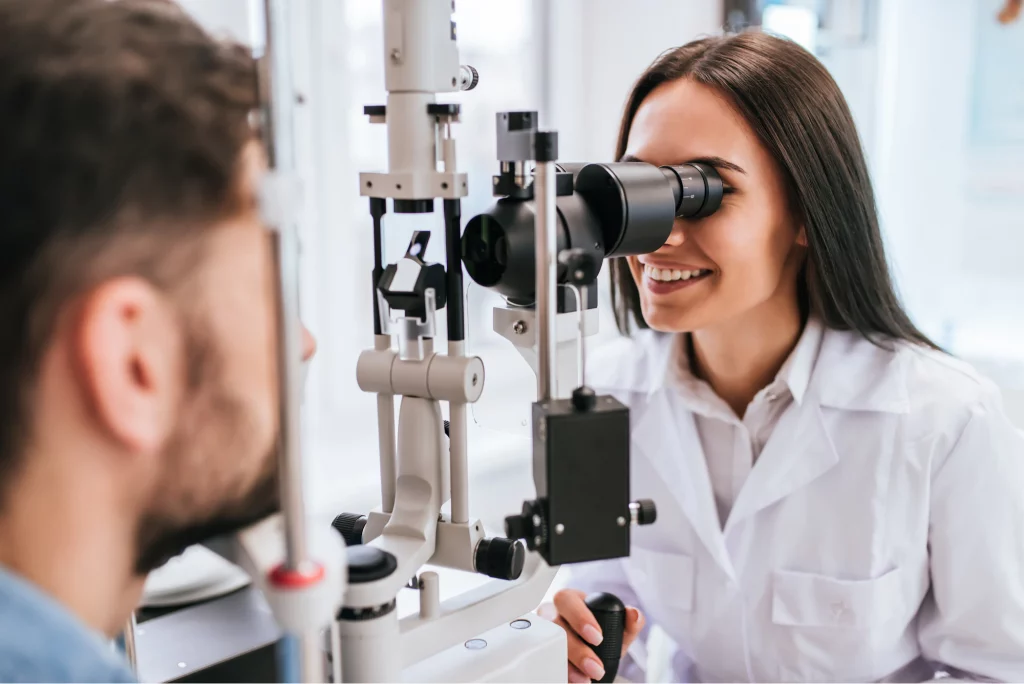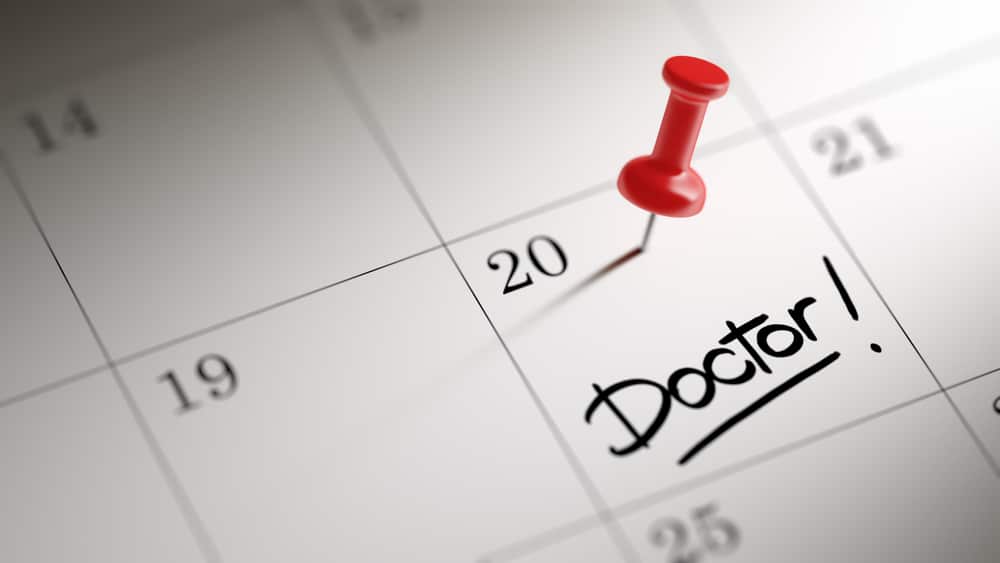Medically Reviewed by: Edward C. Wade, M.D., F.A.C.S.
When to See an Ophthalmologist for Eye Disease Diagnosis
If you have been wondering when to see an ophthalmologist, chances are the answer might be sooner rather than later. If you are having issues with your eyes, whether they be vision or comfort-related, an ophthalmologist can ensure that your eye health is in good hands by providing both practical care on daily eye health and eye disease diagnosis.
Eye disease is often difficult to catch without check-ins with your ophthalmologist. Because the symptoms of serious diseases can present as minor inconveniences and irritations, people often wait until diseases are advanced to seek treatment. Things like redness and dry eye, should they persist for any meaningful amount of time, should be examined by a qualified ophthalmologist immediately, as they are the best chance you have at an early stage eye disease diagnosis.
When should I see an ophthalmologist?
Before you know when to see an ophthalmologist, you should know why you should see an ophthalmologist. Most patients don’t know the difference between an optometrist and an ophthalmologist and are unsure which specialist they should even schedule an appointment with.
What’s the difference between an optometrist and an ophthalmologist? Optometrists are licensed to perform eye exams and vision tests. They can prescribe corrective lenses and contact lenses, and write prescriptions for some medications. Ophthalmologists are medical doctors who are also licensed to perform eye exams and prescribe lenses and medication. The difference is that ophthalmologists are licensed to perform eye surgery and specialize in specific eye diseases and surgical techniques.
You wouldn’t go to an ophthalmologist to schedule a routine checkup, but if you are concerned about your eye health, or have a history of vision problems, you should probably pay one a visit. If you’re looking for the best ophthalmologist in Houston, you’ll find many of them at Eye Center of Texas, whether you need a general practitioner, a specialist, or a surgeon.
Here are some common signs that you should see an ophthalmologist.
If you are undergoing changes in your vision
Vision problems can signify any number of things all the way from serious eye disease to the need for a simple prescription update. Sudden blurry vision can be a sign of cataracts, macular degeneration, or retinal diseases, and new floaters can be a sign of retinal detachment. Symptoms could mean that you need new eye drops, or that you need surgery. Only an ophthalmologist will be able to tell you for sure.
If you are experiencing excessive irritation
Both dryness and redness are common symptoms that can indicate uncommon problems. If your eyes are red, or you have dry eyes at night, and over-the-counter eye drops aren’t providing any relief, you should see an ophthalmologist. In extreme cases, excessive dryness can lead to corneal scratching and result in permanent damage to your vision.
If you are experiencing pain or pressure
Sustained pain is usually a bad sign for your eye health. Something as innocuous as pressure in the eyes, which is often ascribed to sinus pressure, can be a sign of advancing glaucoma. If you have been experiencing pain, headaches, or eye pressure, you should see an ophthalmologist as soon as possible.
Infections, diabetes, injuries
The list of reasons to see an ophthalmologist is long. These are some more common reasons that are not related to everyday symptoms.
- Diabetics should get their eyes checked by an ophthalmologist regularly to ensure that high blood sugar does not cause vision loss.
- Anyone that has or has had an eye infection should see an ophthalmologist to ensure that the infection does not result in serious complications.
- Anyone that has had a non-emergency eye injury should consult their ophthalmologist. Whether physical debris or chemical contamination, ophthalmologists can help treat damage resulting from injuries.
What conditions do ophthalmologists treat?
Ophthalmologists are a great first line of defense against common eye disease. What are common eye diseases that an ophthalmologist would be able to diagnose and treat?
- Glaucoma
- Keratoconus
- Cataracts and fast-growing cataracts
- Conjunctivitis
- Corneal diseases including keratitis, keratoconus, photokeratitis
- Age-related macular degeneration
How do you diagnose eye problems such as these? You go see an ophthalmologist! If eye disease diagnosis is not your concern, the ophthalmologists at Eye Center of Texas also perform corrective vision surgeries and give LASIK consultations.
Continue reading: Questions to ask at a LASIK consultation
Stay on top of your eye health. Know when to see an ophthalmologist from Eye Center of Texas.
Knowing when to see an ophthalmologist is an important part of both overall eye health and eye disease diagnosis. If you are at all concerned about the health of your eyes, have had recent changes in vision, or if it has just been a while, you should schedule an appointment with an ophthalmologist at Eye Center of Texas today.
The specialists at Eye Center of Texas want to make sure that your eyes are disease-free and seeing crystal clear. Do right by your eyes, give us a call at 713-797-1010 or request an appointment online today.
More Helpful Articles by Eye Center of Texas:
- Common Eye Problems in the Winter in Texas
- When to See an Eye Doctor
- Eye Strain Treatment in Houston
- Lasik vs. Contacts: Which is Best for You?
- What to Expect With Lasik Before and After Eye Surgery
Related Articles
Financing Options Available
Apply today to find a financing option that meets your needs.
Our Locations
Houston/Bellaire
6565 W. Loop S., Suite 650Bellaire, TX 77401
Medical Office:
713-797-1010
Medical Fax:
713-357-7276
LASIK/Near Vision:
Office: 713-395-1515
Fax: 713-357-7278
Pasadena
4415 Crenshaw RoadPasadena, TX 77504
Medical Office:
281-977-8800
Medical Fax:
281-977-8877
Sugar Land
15200 S.W. Freeway, Suite 130Sugar Land, TX 77478
Medical Office:
281-277-1010
Medical Fax:
281-277-4504
Clear Lake
455 E. Medical Center Blvd., Suite 110Webster, TX 77598
Medical Office:
281-332-1397
Medical Fax:
281-282-9152
Katy
Greenhouse Medical Plaza2051 Greenhouse Road, Suite 110
Houston, TX 77084
Medical Office:
346-547-7070
Medical Fax:
281-214-2971
The Woodlands/Conroe
100 Medical Center Blvd., Suite 118Conroe, TX 77304
Medical Office:
936-647-1610
Medical Fax:
936-647-1620


